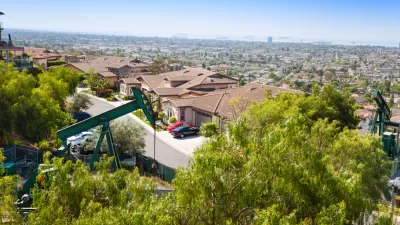The Bureau of Land Management will resume oil and gas leasing in California after a report by a scientific research organization established by the state legislature showed no correlation between fracking and groundwater pollution.
"The study was conducted by the California Council on Science and Technology, a nonpartisan scientific research organization established by the state Legislature [in 1988] to advise state officials," writes Julie Cart, environmental reporter for the Los Angeles Times. Based on the report's findings released Thursday (August 28) "that found little scientific evidence that fracking and similar extraction techniques are dangerous, the federal government will resume oil and gas leasing in California."
The Bureau of Land Management (BLM) commissioned the study, "Well Stimulation in California," after it lost a lawsuit in April, 2013 brought by fracking opponents Center for Biological Diversity and the Sierra Club who argued that additional environmental review was needed before BLM could auction rights for drilling in the Monterey Shale formation.
However, Cart writes that the "authors noted that they had little time and scant information on which to base conclusions, citing widespread 'data gaps' and inadequate scientific resources for a more thorough study."
That was the main point that David R. Baker, energy and clean tech reporter for the San Francisco Chronicle, emphasized in his piece. "There are no recorded cases of that happening in California, the authors note, but it remains a possibility needing further study," he writes.
The report will provide guidance for safe drilling operations, said Jim Kenna, the bureau's California state director. The report delves into issues ranging from the amount of water used by fracking in California - an amount significantly smaller than in other states - to the possibility that disposing of fracking waste water deep underground could trigger earthquakes.
FULL STORY: Fracking report clears way for California oil, gas leasing to resume

Maui's Vacation Rental Debate Turns Ugly
Verbal attacks, misinformation campaigns and fistfights plague a high-stakes debate to convert thousands of vacation rentals into long-term housing.

Planetizen Federal Action Tracker
A weekly monitor of how Trump’s orders and actions are impacting planners and planning in America.

In Urban Planning, AI Prompting Could be the New Design Thinking
Creativity has long been key to great urban design. What if we see AI as our new creative partner?

King County Supportive Housing Program Offers Hope for Unhoused Residents
The county is taking a ‘Housing First’ approach that prioritizes getting people into housing, then offering wraparound supportive services.

Researchers Use AI to Get Clearer Picture of US Housing
Analysts are using artificial intelligence to supercharge their research by allowing them to comb through data faster. Though these AI tools can be error prone, they save time and housing researchers are optimistic about the future.

Making Shared Micromobility More Inclusive
Cities and shared mobility system operators can do more to include people with disabilities in planning and operations, per a new report.
Urban Design for Planners 1: Software Tools
This six-course series explores essential urban design concepts using open source software and equips planners with the tools they need to participate fully in the urban design process.
Planning for Universal Design
Learn the tools for implementing Universal Design in planning regulations.
planning NEXT
Appalachian Highlands Housing Partners
Mpact (founded as Rail~Volution)
City of Camden Redevelopment Agency
City of Astoria
City of Portland
City of Laramie



























